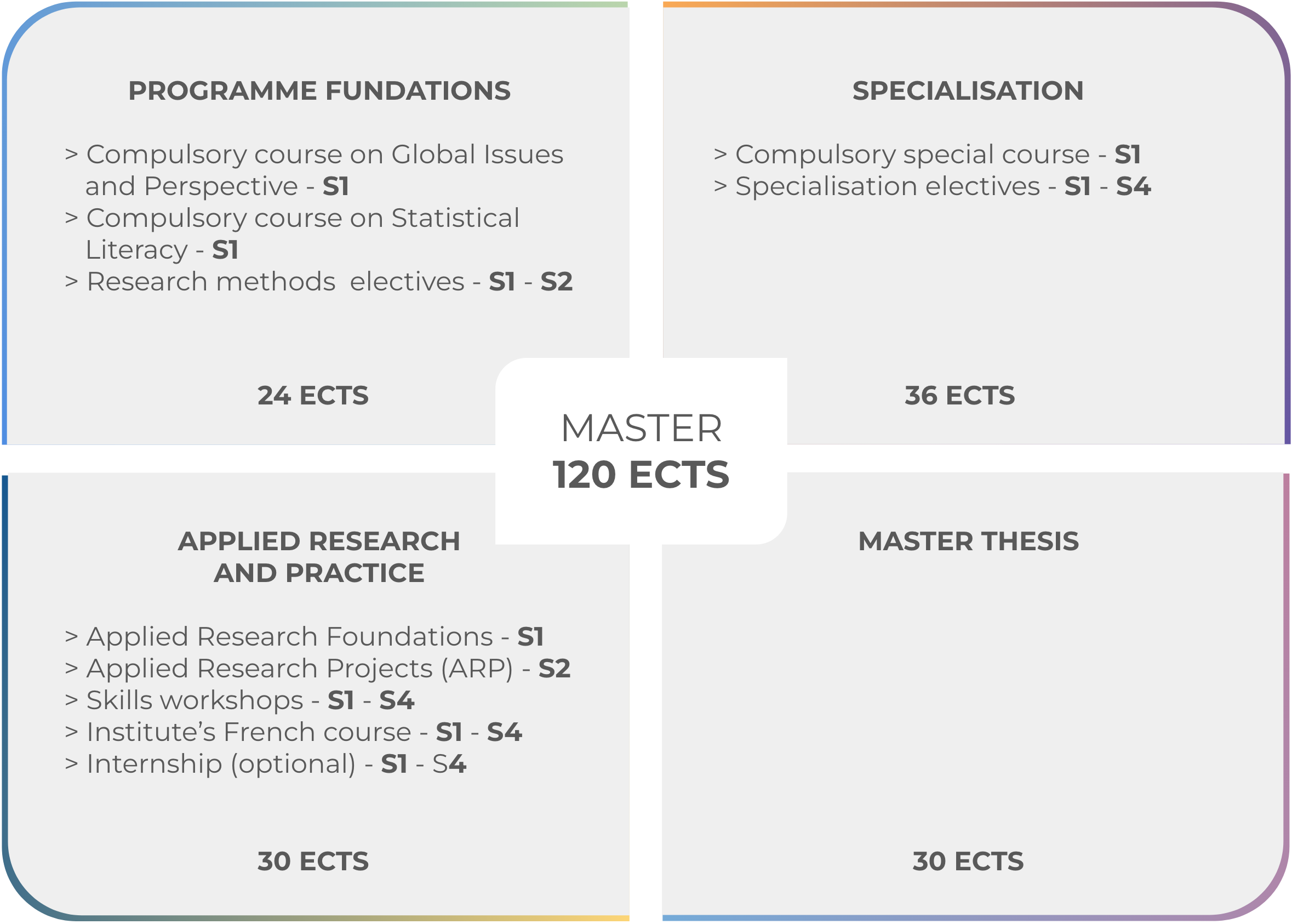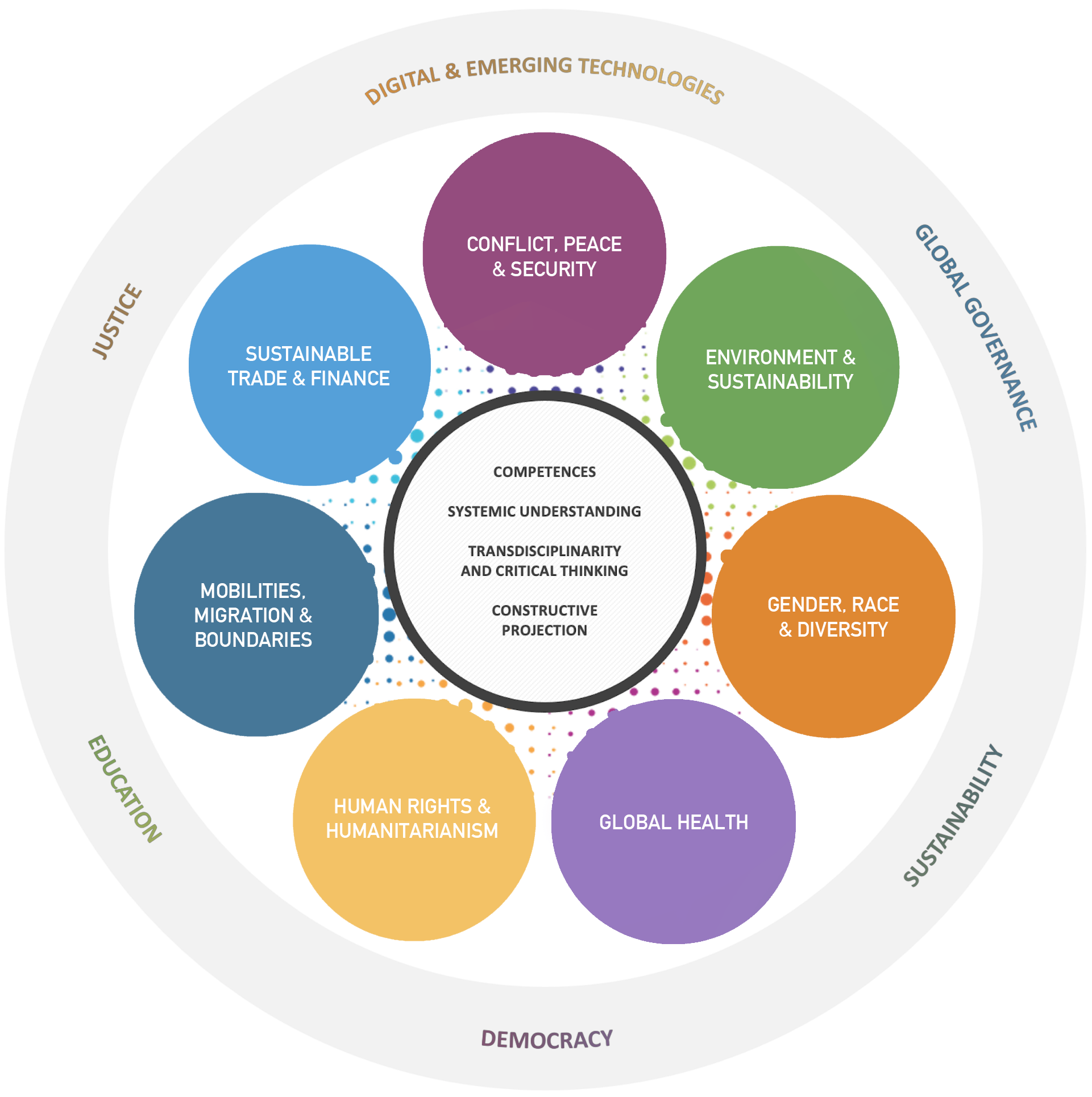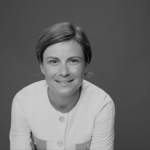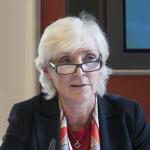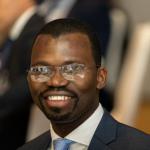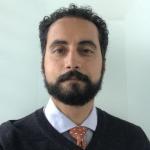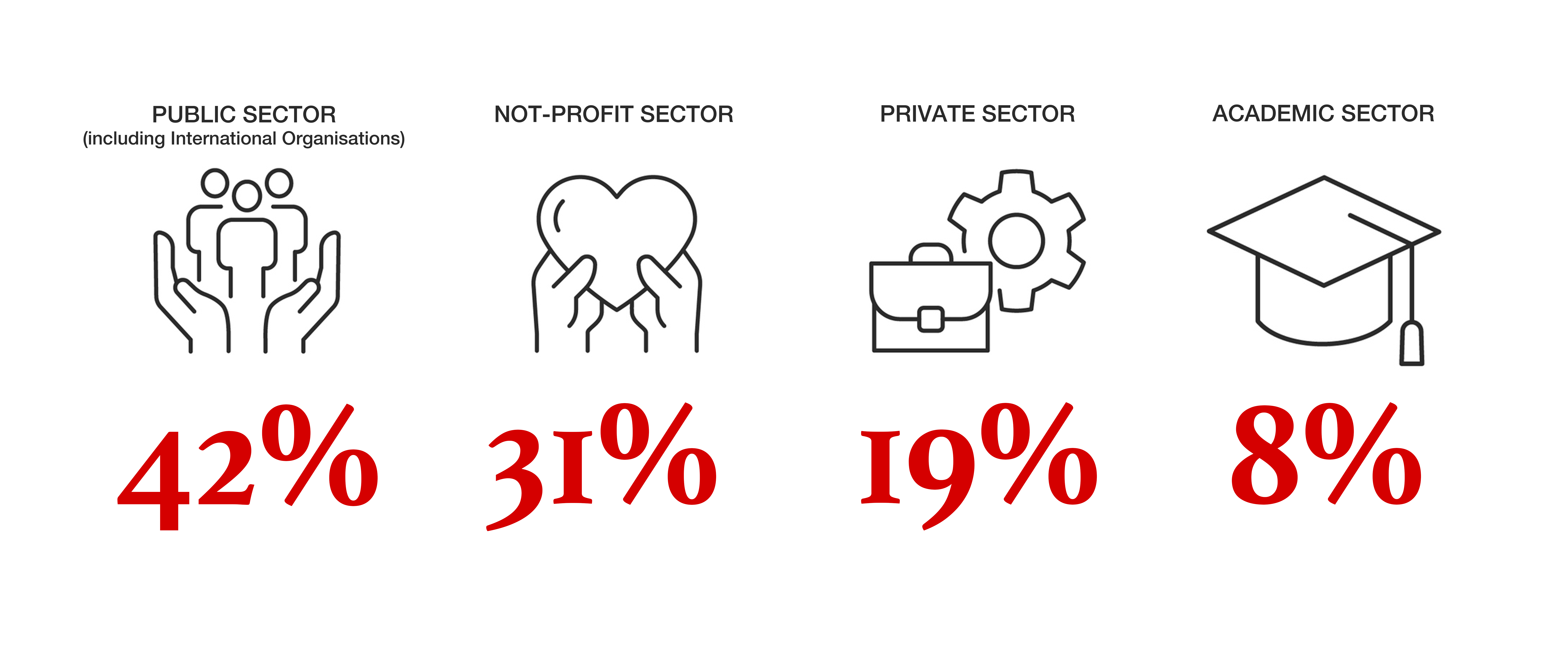The MINT offers a common core and seven specialisations. Each of them follows an interdisciplinary approach, informed by the rich expertise of the Institute in five disciplines: anthropology and sociology, international economics, international history and politics, international law, and international relations and political science. Specialisations are not self-standing silos: they are interconnected curricula providing to students the possibility to tailor to a certain extent. their individual paths.
Most of today's global issues are broader than a specific domain, and we also encourage students to explore their interlinkages through courses dedicated to wider transversal themes (Sustainability, Democracy & Inequality, Fairness & Justice, Digital & Emerging Technologies, Global Governance, and Education).
1 | CONFLICT, PEACE AND SECURITY
This specialisation focuses on the issues of conflict, peace, and security and the interactions among them. It examines the drivers and manifestations of conflict, the nature and conditions of peace, and the determinants of security. Within an interdisciplinary approach, we survey the various historical and contemporary manifestations of these processes.
Some courses taught in 2023 – 24:
- Conflict Resolution and Peace Mediation in Times of Radical Uncertainty
- Peacebuilding and Peace Making in a Violent World
- Predicting Crisis
- Technology, Power, Global Governance
- The Evolution of Global Security
- The Politics and Practice of International Conflict Resolution
Head: Prof. Davide Rodogno
2 | ENVIRONMENT AND SUSTAINABILITY
This specialisation focuses on global environmental challenges, which lie at the heart of the search for a sustainable human future on Earth. It examines the impacts of contemporary political economies locally and at the planetary scale. It adopts an interdisciplinary approach to the understanding of the economics and politics of decisions about the environment, from the global scale (e.g. climate change or global ecology) to the local (e.g. agrarian change, biodiversity conservation, urbanisation or mining).
Some courses taught in 2023 – 24:
- International Environmental Law
- Environmental Economics & Sustainability
- Trade and Development
- Climate Science and Policy
- Political Economy and Geopolitics of International Energy
- History and Politics of Global Environment Governance
Head: Prof. James Hollway
3 | GENDER, RACE AND DIVERSITY
This specialisation addresses how power relations based on gender, race, and other forms of difference structure international affairs. The goal is to provide students with the knowledge, skills, and tools to help redress intersecting inequalities and oppressions globally. Students gain interdisciplinary training that addresses a broad range of topics, including histories of colonialism and decoloniality; anthropologies and sociologies of (anti)racism, sexuality and gender; the economics of gender and development; and the gendered and racialised politics of international governance and international law.
Some courses from 2023 – 24:
- Sociology of Gender
- Public Policy, Economic Development and Gender
- Gender and Bodies in Global Health
- Feminist Political Economy
- Gender, Sexuality and Decolonization in the Global South
- The History of Inequality
Head: Prof. Aditya Bharadwaj
4 | GLOBAL HEALTH
This specialisation focuses on power, politics and governance in global health. Students will learn how global health issues affect, and are affected by, geopolitics through global institutions and transnational actors, political economy, and epistemological and regulatory regimes. Students will also learn how to work across professional disciplines, how to obtain meaningful input from different stakeholders including affected communities, and how to translate knowledge into policy.
Some of the 2023 - 24 courses:
- Health technology innovation and access: politics and policies
- Global Governance and Health: Problems and Politics
- Global Health Law
- Global Health: History, Politics, Controversies
- Global History of Reproductive Politics
- Migration and Health from an International Perspective
Head: Prof. Vinh-Kim Nguyen
5 | HUMAN RIGHTS AND HUMANITARIANISM
'This specialisation will introduce students to these inter-related ethical / legal topics, and their changing relationship. The overall aim of the specialisation is to equip students with a mix of theoretical insights and practical skills that are essential for reflection and effective participation in these two fields of activity.
Some courses taught in 2023 - 24:
- Humanitarian Adventures: Actors, Institutions and Contemporary Issues
- Humanitarians and Human Trafficking
- Human Rights and Development
- Self-determination and Minority Rights: International Law and Politics
- Seminar on Human Rights and Political Justice
- War Law
Head: Prof. Andrew Clapham
6 | MOBILITIES, MIGRATIONS AND BOUNDARIES
This specialisation aims to provide a comprehensive and nuanced understanding of mobility, its centrality in our societies, the governance of mobility, and its centrality for modern-day governance.
Some courses taught in 2023 - 24:
- Forced Migration and International Law
- Managing and Solving Refugee Problems
- Critical Refugee Studies
- Mobility Conflicts, Border Forensics
- Urbanization and its Discontents
- Law without the State
Head: Prof. Alessandro Monsutti
7 | SUSTAINABLE TRADE AND FINANCE
This specialisation focuses on the challenges and opportunities of financial deepening and international economic integration, with a spotlight on sustainability and inclusiveness.
Some courses from 2023 - 24:
- Trade and Development
- Development Finance for the SDGs – Opportunities and Challenges
- Dynamics of Global Economic Governance
- Political Economy and Geopolitics of International Energy
- International Trade Law
- Social Finance for Sustainable Development
Head: Prof. Ugo Panizza
The full catalogue of courses is available electronically by clicking here.



